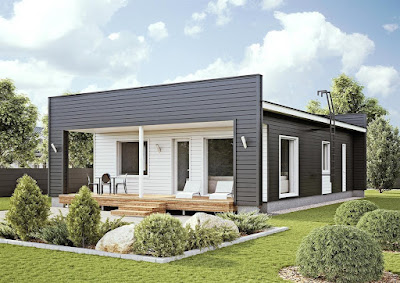The Ultimate Guide to Relocatable Homes: Everything You Need to Know

Welcome to our comprehensive guide to relocatable homes! Whether you're a first-time homebuyer or looking for a flexible housing option, relocatable homes Waikato offer an affordable and sustainable solution. In this guide, we will walk you through everything you need to know about relocatable homes, from understanding their features and advantages to selecting the right design and navigating legal considerations. Let's dive right in!
Understanding Relocatable Homes
Relocatable homes, also known as modular homes or manufactured homes, are prefabricated structures that can be transported and installed on different sites. They offer a range of advantages, including affordability, flexibility, and sustainability. These homes are constructed in a factory setting, allowing for quality control and efficient production. Contrary to common misconceptions, relocatable homes are not mobile homes, as they are permanently installed on a site. They comply with building codes and regulations just like traditional homes.
Choosing a Location
Selecting the right location for your relocatable home is crucial. Zoning regulations, accessibility, and proximity to amenities are important factors to consider. Researching different areas and finding suitable land involves looking at local planning and zoning regulations, as well as potential restrictions specific to relocatable homes Waikato. It is also essential to consider the accessibility of the site and its proximity to amenities such as schools, hospitals, and shopping centers. Additionally, be aware of any legal or permit requirements that may apply, such as environmental impact assessments or building permits.
Selecting the Right Home Design
Relocatable homes come in various designs, offering options for every lifestyle and budget. Single-section and multi-section homes are the two main types, with the latter providing more space and flexibility. Custom designs allow you to tailor your home to your specific needs, while pre-fabricated designs offer convenience and faster construction. Considerations such as size, layout, and customization options should be taken into account. To find reputable manufacturers or builders, consult online directories, local housing associations, or seek recommendations from friends and family.
Budgeting and Financing
Creating a budget for your relocatable home project is essential to ensure a smooth process. Consider the purchase price of the home itself, as well as site preparation costs and additional expenses such as permits and utility connections. Financing options for relocatable homes include personal loans, mortgages, or lease agreements. Research different lenders and compare interest rates and terms to find the best option for your situation. To save money, consider purchasing a pre-owned relocatable home or exploring DIY options for site preparation.
Read More: Relocatable Homes Transportation Services in Waikato

Site Preparation and Setup
Before placing your relocatable home, proper site preparation is necessary. This involves clearing the land, leveling the ground, and ensuring that the site meets all necessary requirements. Depending on your location and soil conditions, you may need to hire professionals for excavation or grading work. The setup process itself includes choosing a foundation option, such as concrete piers or a permanent foundation, and connecting utilities such as water, electricity, and sewage. If needed, there are professionals or services available to assist with installation.
Legal Aspects and Permits
Understanding the legal aspects of owning a relocatable home is crucial to ensure compliance with local regulations. If you own the land, you have more flexibility in terms of placement and modifications. However, if you are leasing the land, make sure to review the terms of the lease agreement and any restrictions that may apply. Local authorities may require permits or approvals for relocatable homes, so it is essential to research and adhere to the specific requirements of your area. Consulting with professionals or utilizing resources provided by housing associations can help navigate these legal considerations.
Maintenance and Upkeep
Like any home, relocatable homes Waikato require regular maintenance to keep them in optimal condition. This includes cleaning, inspections, and repairs. Regularly clean both the interior and exterior of your home, paying attention to windows, floors, and appliances. Conduct inspections to identify any potential issues or maintenance needs, and address them promptly. It is also important to consider insurance coverage for your relocatable home, as it provides protection against unforeseen events such as fire, theft, or natural disasters. Consult with insurance providers to find the best coverage for your needs.
Conclusion:
Congratulations on reaching the end of our ultimate guide to relocatable homes! We have covered everything from understanding the features and advantages of relocatable homes to selecting the right design, budgeting, site preparation, legal considerations, and maintenance. We hope this guide has provided you with the necessary knowledge and resources to embark on your own relocatable home journey. Remember to explore further resources, consult professionals, and connect with local housing associations for personalized advice. Relocatable homes offer endless possibilities for affordable and sustainable living. Good luck!

Comments
Post a Comment